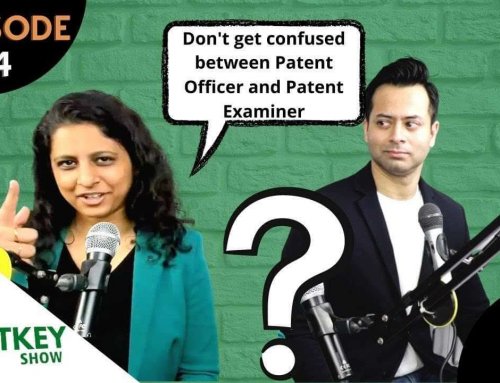In a recent judgment [Mother Dairy Fruit and Vegetable versus S.K. Raheem], Justice of the Delhi High Court granted a permanent injunction in favor of Mother Dairy, restraining the use of its trademark by the defendant in its milk products sold under the name Vinay Milk.
One of the key factors for Court’s conclusion was that Mother Dairy is a well-known mark, meriting stronger protection than a trademark simpliciter. We have covered judicial determinations recognizing a mark as a well-known mark several times in the past.
The plaintiff was commissioned and financed by the National Dairy Development Board in 1974 under the Operation Flood program to manufacture and sell milk products at a reasonable price.
Since then, the plaintiff has been selling a variety of products under the trade name Mother Dairy, such as milk, curd, ice cream, dairy whitener and butter. The plaintiff has also obtained trademark registration for 17 of its products, chiefly under classes 29 and 30.
It has set up around 14,000 retail outlets and 845 exclusive outlets and has a market share of 66% in the relevant market in Delhi.
Pertinently, the plaintiff contended that it has invested a substantial amount of money and effort in marketing its products with a blue-colored logo since 2003, resulting in the logo becoming a key indicator of the product and the associated goodwill/reputation.
For all its products, ranging from full cream milk and cow milk to skimmed milk, the plaintiff prominently displays the aforesaid logo as part of the packaging.
Arguments of the plaintiff:
Contending that it learned of the defendant using a deceptively similar trademark/trade dress in June 2010, the plaintiff stated that it sent a cease and desist notice to the defendants on 13.07.2010 to which it received an evasive response.
When the plaintiff reiterated its claims to the trademark, package, logo and trade dress being used by the defendants vied a letter dated 21.08.2010, it did not receive any response from the latter.
As a result, the plaintiff instituted the suit that forms the subject matter of this post, contending that the defendant’s conduct has resulted in the dilution of the plaintiff’s mark. On this basis, it sought to hold the defendants liable for passing off, trademark infringement as well as copyright infringement for the use of the plaintiff’s logo.
Decision of the court:
While the first defendant, who was responsible for manufacturing and selling the impugned products, was represented by a lawyer in the initial phase of the suit, the lawyer was subsequently relieved of his responsibilities in light of the fact that he did not receive any instructions from his client. Since the defendants did not file any written submissions despite the due service of summons, the Court decided to proceed ex parte against them.
The Court commenced its analysis by noting that the plaintiff was the undisputed owner of intellectual property rights in the package/logo associated with its products, owing to the fact that it had obtained trademark and copyright registration for the same.
Noting that the blue colored Mother Dairy logo has acquired sufficient distinctiveness to be exclusively associated with the products of the plaintiffs in the minds of the consumers, the Court held that this gives rise to the inexorable conclusion that the logo has acquired the status of a well-known mark.
Agreeing with the plaintiff’s argument that the mark/trade dress used by the defendant is deceptively similar to the plaintiff’s mark and trade dress, the Court held that there is a greater likelihood of confusion in this case on account of the fact that the defendant sells its products through the same trade channels as the plaintiff.
On this basis, it ruled that the plaintiff had successfully discharged the burden of proving that the defendants’ conduct was violate-ful by the plaintiff’s common law and statutory rights, caused significant harm to the plaintiff and tarnished its goodwill and reputation.
While the Court granted a permanent injunction in the plaintiff’s favor, it refused to order the delivery up of the allegedly infringing material or grant damages because the plaintiff was unable to adduce any meaningful evidence in support of these prayers.
Noting that a vague declaration by the plaintiff’s solitary witness could not form the basis for the grant of damages, the Court rejected this prayer.
While the judgment is otherwise unexceptionable, two features of the judgment merit closer scrutiny.
First, even though the Court’s recognition of Mother Dairy as a well-known mark in this case did not have a material bearing on the outcome, in as much as the products sold by the defendants were in the same category of goods as those sold by the plaintiff, this determination can form the legal substratum upon which the plaintiff can base future claims of trademark infringement and passing off against defendants dealing in other categories of goods.
Second, contrary to the Delhi High Court’s propensity of granting damages as a natural corollary of a ruling in the plaintiff’s favor on the basis of the ipse dixit of the plaintiff, the Court decided to stay its hand on account of the absence of cogent material warranting the grant of this relief. This approach, of dealing with the merits of the case and prayers for relief separately, which was also recently adopted by the Delhi High Court in a trademark infringement case that Rahul Bajaj had blogged about in SpicyIP, is indicative of a much-needed course correction in the Court’s jurisprudence on the grant of damages.





